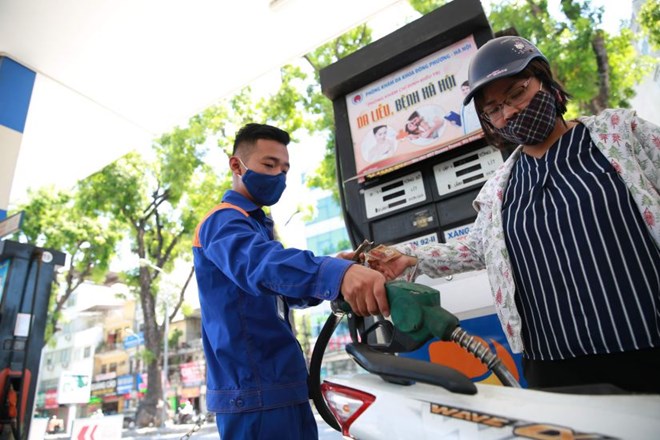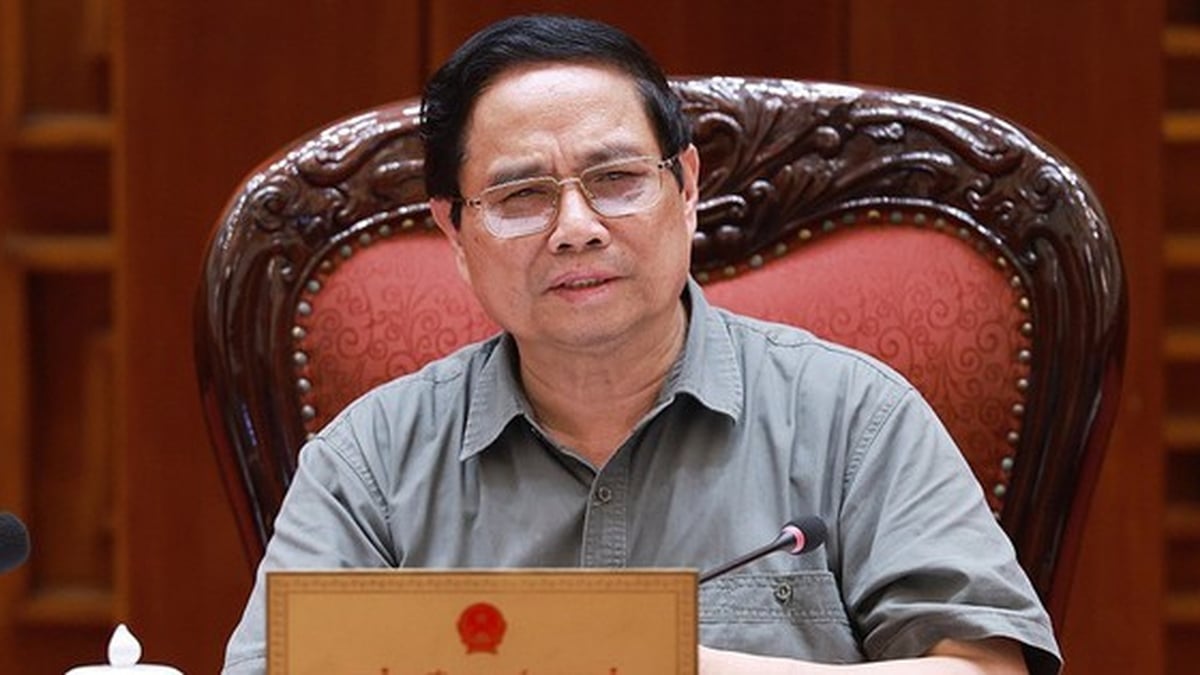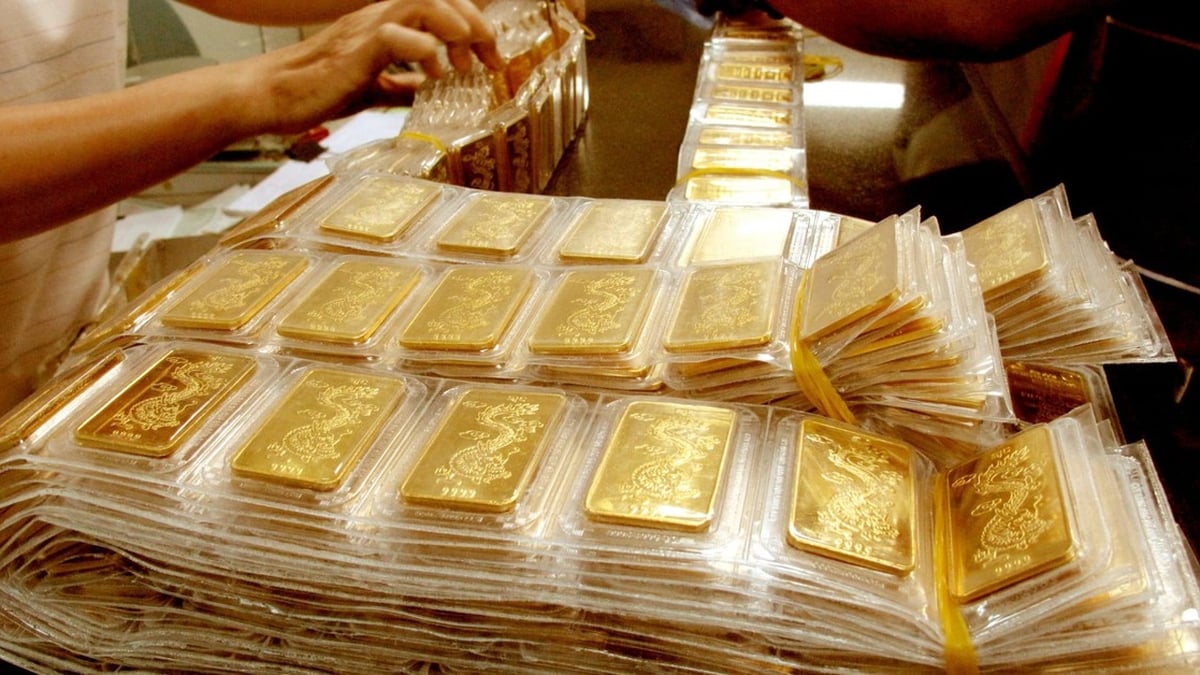
Gasoline prices continue to rise
According to the joint management of the Ministry of Industry and Trade - Ministry of Finance, on the afternoon of March 28, the price of RON 95-III gasoline (the popular type on the market) increased by 530 VND, to 24,810 VND per liter; E5 RON 92 increased by 410 VND, to 23,620 VND per liter. However, oil products (except mazut) decreased, of which diesel was 21,690 VND per liter (down 320 VND/liter); kerosene had a new price of 20,870 VND (down 390 VND/liter).
Since January 4, gasoline prices have increased 8 times and decreased 5 times. Diesel prices have increased 7 times and decreased 6 times. In total, each liter of RON 95-III is 2,900 VND more expensive, and diesel is 1,330 VND more expensive than at the beginning of the year.
Although gasoline prices have been increasing continuously, in recent adjustments, the managing agency, the Ministry of Industry and Trade - Ministry of Finance, has not used the Petroleum Price Stabilization Fund, except for fuel oil, which was allocated 300 VND/kg in the recent adjustment.
Meanwhile, information released by the Ministry of Finance on March 26 - said that, as of the last quarter of 2023, the balance in the Petroleum Price Stabilization Fund was about 6,655 billion VND; compared to 2022, the fund balance was about 2,000 billion VND higher.
Speaking to Lao Dong, Mr. Nguyen Xuan Thang - Director of Hai Au Phat Petroleum Company - said that to control the increase in gasoline prices, we cannot rely on the Petroleum Price Stabilization Fund. Because not deducting from the stabilization fund is in accordance with the provisions of Circular 103/2021 of the Ministry of Finance on the expenditure level of the Petroleum Price Stabilization Fund.
Accordingly, the Petroleum Stabilization Fund can only be used by the inter-ministerial committee when the difference between the base price of the announced period and the base price of the previous period immediately preceding the management period increases by 7% or more. Therefore, although petroleum prices have increased continuously in recent management periods, the base price increase of most petroleum products is below 7%, so the Petroleum Stabilization Fund cannot be used to control petroleum prices.
To curb the increase in gasoline prices, Mr. Thang said that a comprehensive solution and the participation of both state management and the current gasoline system are needed. In particular, key enterprises should increase imports to ensure sufficient gasoline sources when import costs and wholesale costs have been calculated correctly.
Petroleum retailers and petroleum distributors are responsible for the continuous and appropriate circulation of petroleum in the country, avoiding hoarding that causes imbalance in petroleum resources. Consumers should not panic, hoard petroleum, causing local shortages, leading to an increase in petroleum prices.
Scenarios for the petroleum market in 2024
Speaking to Lao Dong, Mr. Nguyen Ngoc Quynh - Deputy General Director of the Vietnam Commodity Exchange (MXV) - said that there are many factors affecting oil price movements in 2024. Among them, political tensions and OPEC+'s production cut policy can push oil prices up, but slowing economic growth and lower consumption can cause prices to stagnate or go down.
In the first scenario, if demand growth is weak, OPEC+ will maintain a low production policy or even cut further to support oil prices. In the second scenario - the worst case scenario, if the tension expands and seriously disrupts the supply of gasoline, the possibility of oil prices exceeding $ 100 / barrel is entirely possible.
"As a petroleum importing country, domestic petroleum price trends in 2024 will closely follow price fluctuations in the world. In 2024, domestic petroleum prices edged up slightly at the beginning of the year, when the impact of OPEC+ production cuts and tensions around the Red Sea affected global prices.
But overall in 2024, supply and demand will be relatively balanced, oil prices will continue to be stable and may be equivalent to the average level of 2023. Moreover, in 2024, there will be less possibility of domestic gasoline prices increasing abnormally like in 2022," said Mr. Quynh.
Regarding domestic factors, according to Mr. Quynh, the promulgation of Decree 80/2023/ND-CP amending and supplementing a number of articles of Decree 95/2021/ND-CP and Decree 83/2014/ND-CP on petroleum trading, which shortens the time for managing petroleum prices from 10 days to 7 days, will help domestic petroleum prices approach world market prices.
In addition, the Government has also approved the National Petroleum and Gas Reserve and Supply Infrastructure Plan for the 2021-2030 period, with a vision to 2050. In the long term, this is an effective solution to help stabilize domestic supply, demand and prices of petroleum.
Source


































































































Comment (0)